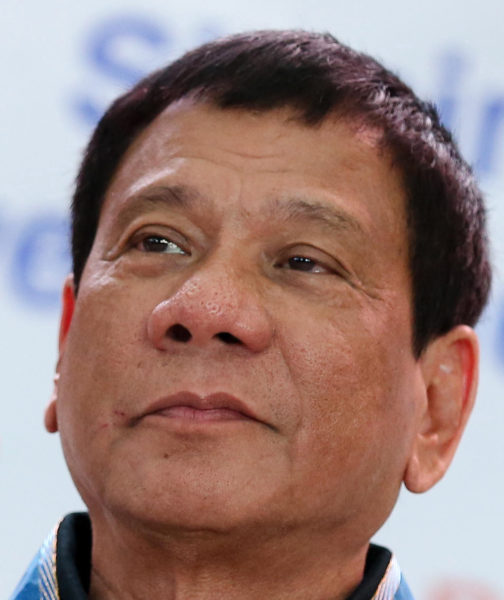MANILA, (Reuters) – Philippines President Rodrigo Duterte appeared to liken himself to Nazi leader Adolf Hitler yesterday and said he would “be happy” to exterminate 3 million drug users and peddlers in the country.

Although the administration of U.S. President Barack Obama played down the remark, Duterte’s comments triggered shock and anger among Jewish groups in the United States, which could create pressure on the U.S. government to take a tougher line with the Philippines leader.
U.S. State Department spokesman Mark Toner yesterday said Duterte’s comments, in a rambling speech on his arrival in Davao City after a visit to Vietnam, were “a significant departure” from America’s partnership with the Philippines “and we find them troubling.”
Duterte told reporters that he had been “portrayed to be a cousin of Hitler” by critics.
Noting that Hitler had murdered millions of Jews, Duterte said, “There are 3 million drug addicts (in the Philippines). I’d be happy to slaughter them.
“If Germany had Hitler, the Philippines would have …,” he said, pausing and pointing to himself.
“You know my victims. I would like (them) to be all criminals to finish the problem of my country and save the next generation from perdition.”
U.N. special adviser on the prevention of genocide, Adama Dieng, expressed alarm at Duterte’s comments and urged the Philippines leader to exercise restraint in his use of language, a U.N. statement said.
Dieng also called on Duterte to support an investigation into the reported rise in killings resulting from his anti-drug campaign, the statement said.
In August, Duterte threatened to withdraw the Philippines from the United Nations after it called for an end to the killings.
In Washington, a State Department spokeswoman, Anna Richey-Allen, had repeated concerns about reports of extrajudicial killings in the southeast Asian country but offered no response to Duterte’s comment referring to Hitler.
A White House official yesterday stuck to a strategy of stressing Washington’s long-standing ties with Manila, saying, “We continue to focus on our broad relationship with the Philippines and will work together in the many areas of mutual interest.”
How relations between the U.S. and the Philippines evolve will depend more on what Duterte does than on what he says, administration officials have said.
In Hawaii on Friday, U.S. Defense Secretary Ash Carter met with the defense chiefs of southeast Asian nations, including the Philippines, and U.S. officials said they would use the forum to clarify comments by Duterte that throw into doubt his commitment to military ties with the United States, including joint exercises and patrols.
Carter, speaking before Duterte’s remarks in Davao, said Washington had an “ironclad” alliance with Manila.
Since Duterte took office on June 30, more than 3,100 people have been killed since then, mostly alleged drug users and dealers, in police operations and vigilante killings.
Duterte, who was elected in May on the back of a vow to end drugs and corruption in the country of 100 million people, has insulted Obama and in a number of remarks he has undermined the relationship between Manila and Washington.
Yesterday, reacting to critical comments on his war on drugs by U.S. Senators Patrick Leahy and Benjamin Cardin, Duterte said: “Do not pretend to be the moral conscience of the world. Do not be the policeman because you do not have the eligibility to do that in my country.”
Jewish groups quickly condemned Duterte’s Hitler comments.
Rabbi Abraham Cooper, head of the Simon Wiesenthal Center’s Digital Terrorism and Hate project, called them “outrageous”.









